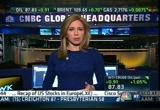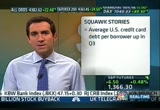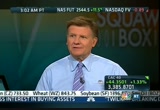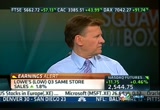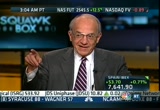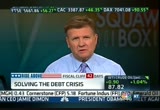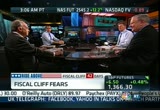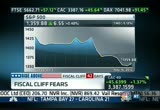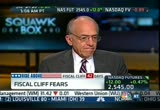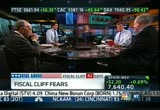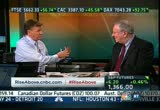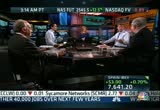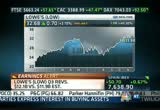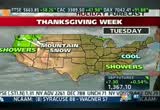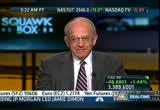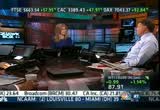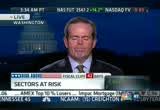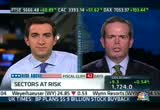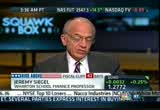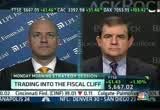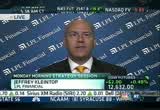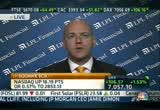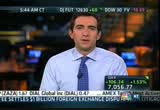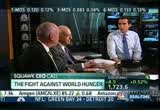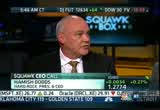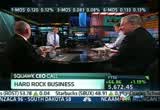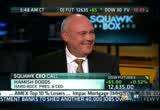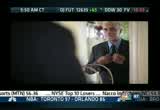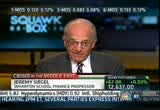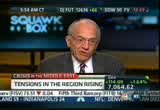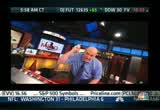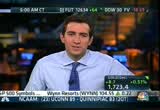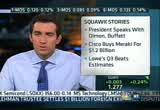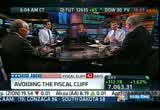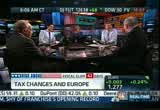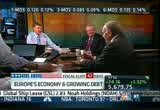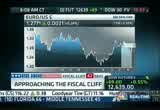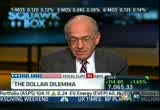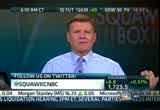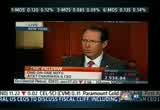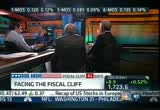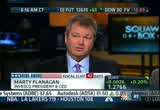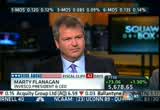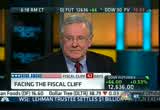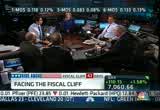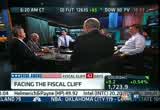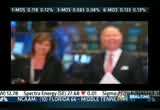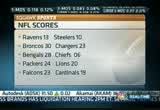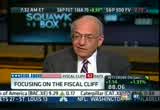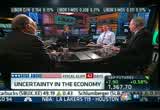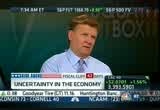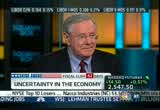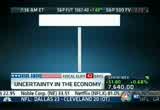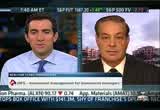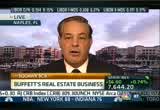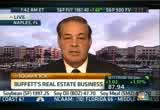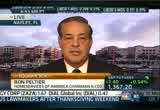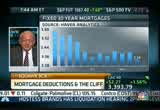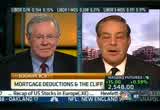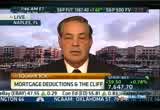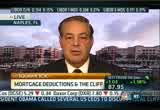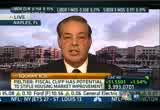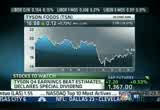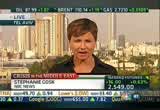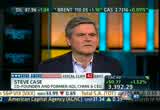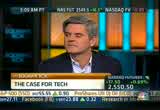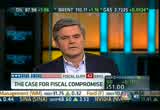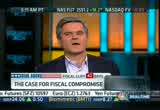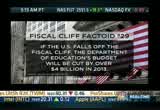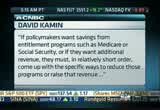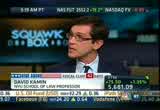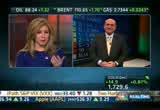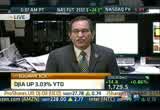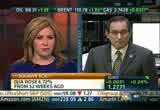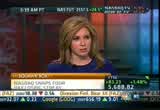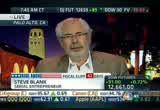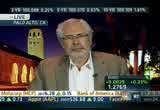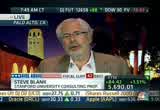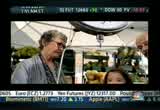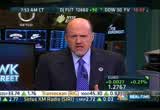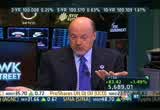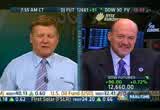tv Squawk Box CNBC November 19, 2012 6:00am-9:00am EST
6:00 am
israeli military says its aircraft targeted about 80 militant sites. in all more than 1300 tar gets have been struck since the operation began last wednesday. we'll have a live report from our nbc news colleagues in the region coming up at 6:30 eastern time. meantime crude oil prices have been rising early today as violence between israel and the palestinians escalated. tenks of course flaming concerns about supply disruptions. ands you can see, wti crude trading at 87.83. as for the broader markets, you'll see the the dow futures are indicated higher by about 70 points. s&p futures indicated by over 9 points. but this is coming as stocks are coming off four straight weeks of declines. at this point the dow is down more than 7% for the last month. largely because concerns about the standoff in washington over how to deal with the fiscal cliff. well talk about all of these
6:01 am
issues at play with two special guest hosts. wharton professor of finance jeremy siegel and trusted american businessman steve forbes. both onset and ready to start this discussion at 6:00. first, though, andrew has a few of the top business headlines. let's talk about some of the headlines this morning. cisco systems buying cloud network start up meraki for $1.2 billion in cash. it was founded in 2006 by members of m.i.t.'s laboratory for computer science. joe, i don't know if you take credit for any of that. bp plans to spend up to $5.9 billion buying back stock. last week the oil giant agreed to pay record criminal penalties over the deepwater horizon disaster. and americans are carrying more credit card debt and being less diligent about making on time payments. trans union now reporting that average credit card debt for borrowers grew 4.9% in the third quarter and meantime the rate of
6:02 am
credit card payments at least 93 days overdue rose slightly to three quarters of a percent. this is still a historically low level suggesting most card holders prioritize card payments over other financial obligations such as a mortgage. and attention twinkie lovers. hostess will be in a new york bankruptcy courtroom today to start the process of selling itself. the maker of wonder bread, twinkies asking the court for permission to sell assets and go out of business. this is d day. so i think we actually have a number of people, joe, if we grt some credit cards together, what do you think, want to go court today? >> somebody will probably buy it in bulk. in our dining room, we have every type of, i don't know -- >> did you go hoarding? >> my wife and daughter, never eaten it before -- >> but the idea that you can't have it anymore, i'm totally with they will.
6:03 am
>> they did get duplicates of most of the stuff, so i was able to open some -- >> saving it for 17 years, right? >> that's the expiration date. >> calorie count is much better than i imagined. i was studying the -- only 140 calories a twinkie. >> better for you than a donut. >> what's the one with peanut butter in it? i didn't like it that much. i don't think any of it's really chocolate, right? i saw a lot of disparaging things written over the weekend. >> chocolate cake, not really -- >> i saw something, one you'd expect to slam the nontrue tr s nonnutritional value. like the post or something. people can eat what they want. i grew up eating them and i'm not dead. >> and twinkies are an energy food. >> perfect for bloomberg to go on -- if it hasn't gone
6:04 am
bankrupt, he would have tried to shut it down. >> jeremy, will you wear a rise a above -- you asked for one. >> yeah. i saw you rising and levitating. >> goolsbee wouldn't wear one because he was sure there was right wing conspiracy. are you ready to wear one. >> >> rise before has all sorts of con know takingnotations. >> but they're all good. >> yes. but i don't have a viagra pen. >> i asked goolsbee, what about be kind to animals. >> people see whatever they want. >> i will wear an i love hot dogs pin.
6:05 am
>> it's a hint at compromise and that's what people don't like. >> in my mind, it doesn't hit a compromise. the president needs to compromise. that's how i see it. >> the republicans don't have to rise above? >> no, they've already put revenue on on the table. now let's compromise on on entitlements. you can lower marginal rights and raise effective rates, right? >> if the president didn't stand in the way, could you have a 1986 tax deal, take off preferences. you could lower tax rates which help the economy. everyone can declare victory. but he doesn't want to do it. >> we'll get to this stuff as soon as we get the situation in myanmar settled a little bit. >> no twinkies. >> still call it burma. >> maybe that's why he's over there, figure out what to call it. we're continuing our call to rise above. sunday morning talk shows discussing the looming fiscal cliff. and the negotiations.
6:06 am
nancy pelosi responded to some members of both parties calling to go ahead and go over the cliff. >> i don't think it's my role to go to the table with a threat. i think it's my role to go to the table with some ideas to be receptive to what we can come to agreement on. i'm not criticizing statements others make. but what i am saying is that there's too much at risk. and even if you went over the cliff for one month and then corrected it, you would still have a loss of gdp. >> and we've already started our discussion with our guest hosts, jeremy siegel and steve forbes. jeremy, we already had the beginning of this discussion. i'll start with you because i said you can see it sort of happening in some of the averages and you see the front page journal piece today about corporations cutting back on
6:07 am
spending. do you not ascribe much to the notion that people are already acting with some trepidation about this and it could be harmful? >> i think the fall since the election is clearly the cliff might be close. there's hope that it had romney won, that force would mitigate or eliminate it, we would have an easy extension. and when he didn't win nor did the republicans do very well, there's an idea, oh, my god, that cliff is much more serious. and i think it has a lot of -- people with capital gains have been locked in saying imrequesting to take under 15%. >> that's not even a fiscal cliff issue. they're going up no matter what. >> but i actually think that that issue of the taxes and locking in lower rates right now is more reason for why the market went down than the cliff itself. >> why would the corporate managers just be pulling back? >> well, you actually outside of housing, that's happened even
6:08 am
beforehand. i mean, with weak demand, gdp going up at 2%, they tonight see a lot of need for increased capacity at this time. i think a lot of that is the pulling back. until we see a stronger economy and stronger consumer growth, why increase capacity. not enough people will buy it. >> but you think this is happening in spite of the fiscal cliff, not because of it? >> i think a lot of it -- and we're still in a slow mode. i think we'll accelerate next year. i think we have the ingredients to do that. we're finally getting the housing on track which is so very important. >> so does the pull back represent -- is it attached to anything? are you buying right now? >> i would say yes. the capital gains tax increase. and a worry -- certainly there is a worry that if we go off, we'll have a short term sharp recession. i don't think it will be long term. >> if that happens, where should the market be? >> just on terms of a recession alone? >> what would the market be
6:09 am
fairly priced? is it fairly priced today? >> i think it's underpriced. >> for a recession? >> for a short recession, yes. i even think we'll see 2013 stronger. first of all, i think even if a tax deal is delayed, it will be retroactive to january 1st. and sequestration isn't going to happen to anywhere near the degree. only thing probably we can talk about what will be there, the payroll tax two percentage point cut i think will expire. and i think there will be a short term compromise on the rates and then a reconvening of simpson-bowles to get the long term solutions right for this country. >> steve forbes, you sat down and you you've written -- you've tried, you've tried hard, your other book was hcapitalism will save us if we let it. why flee markets are moral.
6:10 am
and big government isn't. you sat down and said i guess the battle will continue because this last election no one read those books, i guess. they must have, but not enough people obviously. you didn't give them away. maybe that's why. but the one thing that -- >> i offered it to the romney camp, but they didn't take it. >> we tried to get romney on here a bunch of times. don't get me started on people that ran that campaign for him. but you were looking for one silver lining when you sat down and all you could come up with was that there are some governors that might not implement the exchanges for obamacare. is that the one thing you're positive about this morning in. >> short term we'll have a lot of turbulence and no small part because the federal reserve is still out to trash the dollar. europe, all the european countries are raising taxes. japan's raising taxes. we're going to raise taxes. just a matter of how much. so we'll have rough sledding next year. but the silver lining is
6:11 am
obamacare will get a real adverse reaction, hostile reaction like it did in 2009, 2010. exchanges are one part of it. so i think out of this in the next four or five years you'll see a real push for free markets in health care. and on the monetary side, i think the fed is going over the the cliff so to speak will push reform there to get a stable dollar again. and on the economy, clearly the economy is not going to be in the kind of buoyant mode it was in the '80s and '90s. people will ask why. the new normal is the the new abnormal. there is no reason we should have the miserable growth rates. >> let's say back in 1980 that reagan didn't win. we just have the notion that the '80s would have been great either way. a lot of people do. whomever was there, it would have happened. we'll get to check now whether any of these policies that we're now going to pursue actually were the root cause for the slow growth or whether it was just a hangover from the financial
6:12 am
crisis. we think he got a four year pass on that because it was really bush's fault, but now we'll see whether it actually happens. but if we have a slow growth for the next two years, if we have 1% to 2% and it just seems almost chronic, will that matter some he's not running for re-election doesn't matter. >> it doesn't matter to the president, but tu matters to democrats coming up for re-election in 2014. you have the whole house. you have a number of governorships. a third of the senate. so they care even if the president doesn't. and then the key thing is for the republican party, and i think they will because they'll be changes there, are going to have to learn to advocate free market freedom again. unfortunately governor romney didn't do it consistently will the way ronald reagan did in 1980. >> so you you blame romney for not doing a better job of -- >> if you don't define yourself, at the speech at the convention, five points which had no overall theme was almost shoved in at
6:13 am
the end before he had a good first debate, but didn't follow through on it. >> how much of it is the idea that president obama was able to capitalize with women, was able to capitalize with hispanics, with other people who may have felt alien meanted? >> you define yourself. ronald reagan ran as a pro-life candidate. but, again, he defined a certain agenda. he set what is positive things on out there. if you don't, the other side will do it for you. so they got away with war on women and the idea that gm was a choice between liquidation and reorganization xhrks is wasn reorganization, which is wasn't. romney had a good plan that would have saved tax players $30 billion. >> so you don't think the platform of the party will be fundamentally a different platform? >> you don't have to change the fundamentals of your principle. of you have to learn to get the message out there.
6:14 am
for example, when romney announced paul ryan, you notice the background, all white. why? that's just stupid if you're trying to reach out to voters. same thing at the convention -- >> you blame it solely on on the candidate himself not -- >> and the party. the candidate and the campaign and some of our senatorial candidates got it better which is why they faired fairly well. but you have to have the positive optimistic reaganesque message, sound money, lower tax rate, opportunity of controlling your own health care and the like. >> but people say demographics are going in the wrong direction. >> demographics change. we assume if you start out in a certain part of life you're going to stay there forever? no. people move up. >> what about -- >> irish, italians were all seen as democrat. ray began coeagan comes along, to republican. >> you ck didn't have 47% on th
6:15 am
receiving end. i'm allowed to say 47%. i'm not running for anything. it wasn't 47% when reagan was running. and i'm with andrew on this, listening to the radio, there was this really smart guy organization he was talking about, god, i really wanted to vote for romney. all free market. just -- but he goes i'm gay and i finally decided i'm going to vote for obama. so here is a guy, republicans would love to have this guy. and his partner. but they can't do it. and it's the tent that needs to get bigger somehow. why shouldn't the republicans have that guy in their party? >> because the republicans didn't emphasize enough what their real priorities were. >> but this guy was worried that he wouldn't be as free as everybody else. >> well, the gay issue just take that is on a state level. and for the first time ever, that was a referendum starting to win. >> it's already moved. the republican party is stuck and hasn't moved with public opinion. >> people can have different
6:16 am
beliefs. remember, american political parties are a coalition of people who often don't like each other starting back in the 1860s when the republicans had sger man immigrants who were catholic and no nothings who anti-skath lick, anti-catholic brought them together. united on on key principal things. ray dweagan showed how it could done. roosevelts had catholics in the north and racists in the south. you can bring coalitions in the south. fdr the good war leader. let's leave it at that. >> all right. >> we'll have a lot more of this conversation this morning. when we can back, we'll call it cliff proving your portfolio. we'll talk about stocks to buy and sell now. based on what you think is going to happen regarding taxes and spending in washington. i always wait until the last minute.
6:17 am
6:19 am
we've been keeping our eyes on oil this morning. it's up a dollar that the point. wti at 87.29. this is coming as violence between israel and the palestinians continues. israel continuing to hit tar gets overnight. an official close to netanyahu tells reuters that israel is ready for a ground invasion of gaza. but prefer as diplomatic solution. lowes report being third quarter profit of 40 cents a share when you strip out certain items. that is above the expectations of 35 cents is share. revenue also coming in line.
6:20 am
it beat consensus as did same store sale which is rose 1.8% for the quarter. that stock up by better than 2% this morning. >> now time to talk weather. todd santos joins us from the weather channel. >> at least a few things going on here. satellite actually looks qui fret boston to buffalo. d.c. travel weather pretty easy today. that area of low pressure off the southeast coastline, at least spreading some showers on toward north carolina and this disturbance pushing at least a few clouds in towards chicago. on the radar, doesn't look like very much. lightning trackers not picking up any lightning and as it makes its way across the eastern edge, a lot of the showers likely to fall apart. chicago maybe a little drizzle today. that system off the east coast will slowly drift further away, but it is pushing a lot of water in towards the edge of the outer banks. highway 12 had issues, had to close a couple times. much of the activity will remain off the coast.
6:21 am
still will deal with some of those winds. it's limited as the effect of it, but still talking winds at 20 to 30 miles an hour range with some higher gusts. just to the north, could see a few showers. but d.c. itself, new york, boston, temperatures in the 40s with sunshine in the area. tuesday, a beautiful set up there, as well. even travel wise, still looking good. wednesday, with that system still off the coast, mayy windsf the coastline. as far as a few other areas, the whole thanksgiving week, aside from the one disturbance in the central u.s. and the one other area off the carolinas, fairly quiet with the exception of the northwest coastline. that's where we're dealing with a lot of snow and a lot of rain. much of the snow over 7,000 feet. rain especially coastal oregon in some areas 7, 8 inches over the next few days.
6:22 am
tuesday, still fairly quiet travel wise. wednesday, that persists in the northwest still remaining one of the trouble spots. thanksgiving, looking pretty good across a good stretch of the country. just a few showers up towards seattle. and as far as the numbers for friday are concerned, looking good there, as well. that may help some of the consumer numbers on black friday. >> why do you have a cool there for thanksgiving? i thought it would be fairly mild here on thursday. i heard low 50s. >> here we are in november, though. so cool, 50s. it's close to the averages. >> all right. just wanted to make sure. i was paying attention. supposed to be sunny and 50s. >> are you going to the parade? >> i'm going to try to go to the parade. we try to go every year. what about you? you're already there. >> we're already there. we watch it indoors. we have friends, we watch it from windows. >> we're not going. we'll watch on tv. >> my wife always goes to
6:23 am
philadelphia thanksgiving. it's actually older than new york. nowhere near as big. >> but they have the mummers. that's new year's day. >> this is macy's. >> i know, it's not as big or grand, but i think it is older. >> squawk sports new, we start with last night's nfl game. the baltimore havens beating pittsburgh. 13-10 for a third straight victory. over the steelers. ravens own a two game lead at on op the afc north. chemical sports, notre dame had no problem with wake forest. reached number one this both the ap college football rankings and bcs standings. fighting irish only need to beat sc. yeah, only. >> the quarterback had a strained shoulder or something and they lost to ucla. >> they did.
6:24 am
got it within three and then ucla scored a touchdown and never did come back. alabama is second in both the ap rankings, bcs. for me it's weird. i'm back to questioning this whole -- was kansas state, they're good, but baylor beat them handily. there has to be a better way to find who number one is. and the teams that are good, they may lose, but depending on how they lose. and stanford was able to beat oregon. and then we're still talking -- only because people went here, but rutgers won. >> what do you mean only because? they beat cincinnati, your hometown. >> i did not go to -- 10-3. >> 10-0. >> no, 10-3. and the most boring game. >> but they won. that's all that matters. >> i wouldn't have been excited about cincinnati.
6:25 am
this is like a farm club. like 00a aa league. >> i'm not saying they're number one in the nation, but they've done well. >> top 25. they'll go to the toilet bowl or -- >> maybe the orange bowl. >> dream on. >> if you're going to the orange bowl if they make it? >> i don't know. >> there's like 80 bowls. there's a chance for the orange bowl? >> no, they could. >> does that become a lesser bowl in recent years or something? >> you're just so bitter. you don't have anyone to root for. >> i like notre dame. i like sc, too. i have to be he very tactful. my wife went to sc. >> so what do you want, sc or notre dame? >> i have to go with my wife on this one. i told her yesterday i'm hoping for sc. if you hope for disappoint you. >> so you're rooting for them by rooting against them? >> no, i'm rooting for sc.
6:26 am
i'm split. my wife and i got nbc. who is more important? >> sounds like you're running for office. >> i know. i'm like at the foreign policy debate where romney was, right? nice work on that one, particularly the rope a dope. that was brilliant. >> when we come back, we'll talk about stock plays to beat the fiscal cliff and plus a live report from the middle east and what rising tensions there mean for the global markets. [ male announcer ] you are a business pro. monarch of marketing analysis. with the ability to improve roi through seo all by cob. and you...rent from national. because only national lets you choose any car in the aisle... and go. you can even take a full-size or above, and still pay the mid-size price. i'm going b-i-g. [ male announcer ] good choice business pro. good choice. go national. go like a pro.
6:27 am
[ male announcer ] good choice business pro. good choice. i have obligations. cute tobligations, but obligations.g. i need to rethink the core of my portfolio. what i really need is sleep. introducing the ishares core, building blocks for the heart of your portfolio. find out why 9 out of 10 large professional investors choose ishares for their etfs. ishares by blackrock. call 1-800-ishares for a prospectus which includes investment objectives, risks, charges and expenses. read and consider it carefully before investing. risk includes possible loss of principal. if you are one of the millions of men who have used androgel 1%, there's big news. presenting androgel 1.62%. both are used to treat men with low testosterone. androgel 1.62% is from the makers of the number one prescribed
6:28 am
testosterone replacement therapy. it raises your testosterone levels, and... is concentrated, so you could use less gel. and with androgel 1.62%, you can save on your monthly prescription. [ male announcer ] dosing and application sites between these products differ. women and children should avoid contact with application sites. discontinue androgel and call your doctor if you see unexpected signs of early puberty in a child, or, signs in a woman which may include changes in body hair or a large increase in acne, possibly due to accidental exposure. men with breast cancer or who have or might have prostate cancer, and women who are, or may become pregnant or are breast feeding should not use androgel. serious side effects include worsening of an enlarged prostate, possible increased risk of prostate cancer, lower sperm count, swelling of ankles, feet, or body, enlarged or painful breasts, problems breathing during sleep, and blood clots in the legs. tell your doctor about your medical conditions and medications, especially insulin, corticosteroids, or medicines to decrease blood clotting. talk to your doctor today about androgel 1.62%
6:29 am
6:30 am
be like final four -- the good team s play with each. not the teams with average crappy schedules -- >> cincinnati, louisville. >> big east teams played arkansas. >> i do agree that you should play through. but you you could say that about the entire set up. >> we're supposed to be welcoming people back. good morning and welcome back. i'm gjoe kernen along with beck quick and andrew ross sorkin. our top story today, israel continuing to hit targets across the gaza strip. the israeli overnight military says its aircraft targeted about 80 militant sites including underground rocket launching sites and smuggling tunnel. in all more than 1300 targets
6:31 am
have been struck. oil prices still -- moved a little. still below $90. stephanie gosk joining us from tel aviv. good day, stephanie. >> reporter: good morning. how are you? >> i'll swrvery well. >> reporter: there are fwoesh yagss for a cease-fire and there are certainly people on both sides of the conflict hoping they can reach some sort of an agreement. but what we've seen oefrts weekend is that violence keeps occurring at a fever pitch. the deadliest attack took place on sunday. this is part of israelily forces attempt to broaden their attacks to include residences of hamas leaders. they hit a two story residential building and killed at least 12 people, including 10 people from the same family. there were an increase of hits overnight. they hit the police headquarters
6:32 am
in gaza as well as another house. and those casualty numbers have yet to reach us. but officials in gaza say that at least at this point 95 have been killed over the course of this latest conflict. here in israel, the rockets keep coming. there have been 16 fired at the country since midnight last night. a good portion of these rockets are being taken down and intercepted by a missile defense system here known as the iron dome. it's been incredibly successful and has limited certainly casualties here on the ground in israel. >> seems like an intractable situation. stephanie, thank you. a lot of the analysis over the weekend, harass leader that was killed was instrumental in bringing the supply chain to get these long range 45 miles that can hit tel aviv to bring them in from iran, they know exactly how the guy does it. it's a network, very sophisticated to get these things finally in a position
6:33 am
where you can laufshcan launch . so israel is sitting there getting hammered with the stuff over the months, keeps coming in, civilian respect people aren't safe. and then all hell breaks loose and israel and a lot of civilians, collateral damage. so that makes the people in gaza -- >> that's made the difference because it has's eased the pressure on israeli leaders. you haven't seen the israeli casualties like in years past. effectiveness rate of over 90%. instead of running in will to the shelters, people are running out of their houses and shooting videos. a little frightening. >> star war which is sort of what this ultimately became. >> and we could do a lot more if we devoted the resources to it. do you know what one of the biggest pipelines? through iraq. they just opened it up. we don't have troops there to stop it. so it's a huge pipeline now.
6:34 am
>> we'll continue following this story, but in the meantime back to the u.s. and uncertainty surrounding the fiscal cliff. which is putting pressure on stocks across the board. but which sectors are most at risk and how you can cliff-proof your portfolio? i hope brian has an answer for this. a connection between wall street and washington, an analyst at kbw. that's the question, besides basically selling everything you have, how do you cliff-proof your investment portfolio? >> i don't think that it's cliff-roof. i think financials are on the roller coaster until we get resolution. washington always creates exit and entry opportunities and i'm pretty confident that the cliff will be averted in large part. and so i think after we finish the roller coaster ride and we get to mid-december and we have a deal, i do think it's a good entry point for opportunistic
6:35 am
buyers. >> so it's a good entry point today, this morning, that you should call your broker or you should wait until -- what are you saying? >> i would wait. there's going to be a lot of up and down over the next couple week. i think once we get past thanksgiving, the president gets back from his asia trip, congressional leaders come back to "washington post" thanksgiving, real negotiations really start digging in at that point. when we get clarity that's an opportunity to get in. right now i would be very cautious. >> and how are you handicapping the cliff itself? what percentage do you put on us going over january 1st? >> very low. i put it well below one in four. below 20% i would put it. >> you're based in washington. p why do you say that? i was just in washington and i came away with the opposite conclusion. i would have been 80% or 90% that we would go into january still dealing with these issues.
6:36 am
>> i think people are so nervous about going over the cliff and it's in everybody's interests to avoid it. steve before was mentioning the 2014 congressional elections. you have a group of centrist democrats from states that romney carried overwhelmingly who are up for re-election including the chairman of the senate finance committee,aucus keep leader in getting a deal with the white house. there is a deal to be had here. it may not be perfect. we may not be it's great. but it's still a deal and it will be averted. >> brian, thanks for joining us this morning. jeremy, do you have a thought on that? >> i think if you wait until it gets clear, the market will be up. my feel aing is that when there's a deal, we'll see a 1,000 point rally. not in one day, but over a period of days, in the dow. so if you wait then, i think now is the time to go in.
6:37 am
i think there's a three in four chance that a deal will be made for an extension. i think the important thing is that two stage. first we need some extension and then we need a reconvening of simpson-bowles. >> to get a real solution. >> and i don't think they can both be done at once. we can't solve entitlements in lame duck session. >> down side. worst case scenario, we go over, what does the the market do? are we down another 1,000 points? we're off 7%. >> i say that if nothing is done-will- >> if we're in the second week of january -- >> you're down another 7%, 8%, 9%, yeah. >> let's wri e's bring in a few voices on this. joining us is jeffrey kleintop at lpl financial and also bob dole. bob, what do you think, did do you agree with jeremy's assessment that if we don't have a solution by the second week of january, you can look at another
6:38 am
7%, 8 pr%, 9% lower? >> i will agree. it's the probability assessment that's the hard part. and we know time is limited. so i would agree we're not going to get the whole thing done. i think we'll get 6 to 12 month extension. some down payment on entitlements. some more give up from the upper income levels. postponement of most of the sequester items. and a mandate to congress to get something done in 2013. let's hope that part happens. >> jeff, you hear jeremy saying that could be the case, we could dough gown if we don't have a solution, but he also says it there is a solution, that you could see a 1,000 point rally or so. what do you think of that idea? >> i think obviously the fiscal cliff is giving investors a lot of grief. and there are five stages. first one is denial. we're now into anger and the markets pulled back about 7% or
6:39 am
8% since the peak, but we're in the barb gaining stage of this kind of fiscal cliff angst and grief. but next comes depression before we get to acceptance. i think you could see a bit more of a pull back and that's why there are interesting investment opportunities in technology, in home builders that have pulled back, but we're not quite there yet. i think we'll get that opportunity in the coming weeks. >> you think there will be a lot more volatility and what we've seen will continue? >> yeah, take a look at the lame duck sessions of the last 50 years. volatility is three times higher in lame duck sessions. so expect that. plus every one of them, we've seen the market decline. even with major accomplishments like increasing the debt ceiling. so still likely to see some down side. i don't being ythink you need t about missing it. the big he risk is being too early coming back in. >> what are the tech names that you like? >> in the technology sector, there's a lot of interesting
6:40 am
opportunities. mainly those that export. china's growth is beginning to improve. they buy a lot of capital equipment from us. so it's the big names in technology that provide a lot of that export capital equipment that we think will buns back the strongest in the first. >> bob, another thing we've been talking about is the people have been selling dividend sftocks because of higher taxes kicking in and they figure this is the last chance to get something at 15%. is that part reason you think we've seen a selloff? >> i do. i think people have a lot of gains in some of those stocks and they're taking money off the table worried about what their dividend tax rate will be. dividend tax rates are going up particularly for higher income investors. we know that. and so that's the place people are taking profits. look, you still want to own companies with positive free cash flow so they can raise their dividends over time those stocks will do well. >> in terms of raising dividends, we've also talked to people about the idea how
6:41 am
companies can buy back stock. should you look at it as a fair trade and buy back more of the shares outstanding? >> absolutely. lots of companies are doing one or the other. i like the companies that are doing both because that's showing that in fact they do have confident that their free cash flow will continue to increase. p so if you can find that combination, i think that's the rich one. >> okay. bob, jeff, gentlemen, thank you both for joining us. appreciate it. a quick break now. from individual investors to corporate leaders, everyone trying to navigate the fiscal cliff. we'll talk to the ceo of the hard rock cafe about much more than music next. all energy development comes with some risk, but proven technologies allow natural gas producers to supply affordable, cleaner energy,
6:42 am
while protecting our environment. across america, these technologies protect air - by monitoring air quality and reducing emissions... ...protect water - through conservation and self-contained recycling systems... ... and protect land - by reducing our footprint and respecting wildlife. america's natural gas... domestic, abundant, clean energy to power our lives... that's smarter power today.
6:45 am
hard rock international is teaming up with yoko ono. and why hunger for the imagine there's no hunger campaign. horn $4.5 would million has been raised during the past five years and the president and ce off of the hard rock cafe has been very involved in this. tell us a little bit it. >> thanks for having me. this is a ram we've beprogram w running for many years. there are a billion people beneath poverty and hunger level in the world. and the program really is a program that enjoins why hunger, yoko ono and ourselves and we encourage our staff and our customers to basically provide funding around this holiday season so that we can divert the -- >> so if i eat at a cafe or one of your hotels, you're hitting
6:46 am
me up for money where? >> basically as you're paying your check, we'll ask if you want to makee donation and buy bracelet or t-shirt. >> how much are you hoping to raise? >> hopefully over a million this year. we've raised over a million each the previous years. >> let's talk about the economy while we have you here and the consumer. are you seeing an impact in the front page of the "wall street journal" today says that businesses at the corporate level are saying we're not spending. are consumers not spending? >> consumers are spending, but i think they're just being more cautious. everybody is looking for more certainty. what's the track that we're going down. and i think it also vary significantly by market. when we look at some of our european markets, we can see this huge sway between what's happening in southern europe and northern europe. very different. asia versus the americas,
6:47 am
different behaviors depending upon which country we're in. >> what is the single most successful hard rock cafe? >> here in new york. in making the move, we quadrupled our revenues. >> most successful hotel? >> probably orlando, our family hotel in orlando. >> was the move because the times square location catches all the tourists? >> partially that. i think it's also just the shear advivisibility of times square. 15, 20 years ago and today, today we probably couldn't get into times square because the represents are so high. we got in about five or six years ago and we've got some great space. and an iconic location. and that's really what we're looking for for our brand. >> why are all the other celebrity based oriented restaurant chains not worked? >> because they took their eye
6:48 am
off food. and we've really been focused very, very diligently on trying to make sure we have great cooking. we also have a unique shareholder structure. they put a very pragmatic capitalization structure on us in terms of not too much debt, so we're not private equity driven so as to speak. they're taking a long term view. i don't really worry too much about quarterly earnings. i worry about long term and i'm happy to sort of take the road that way. >> thank you for being here. good luck with your project. it's an important one. and you do have to score us a suite in vegas. i don't know. joe and i are going. >> joe's favorite place. >> joe's not going? come on, vegas. >> i might go to orlando. >> they have a pool there that's pretty extraordinary. what do they call it that on sunday? >> pool sundays. >> it has a name. >> it has a that i am, but pool
6:49 am
sundays are probably good. >> like hangover party on sunday or something like that. but i don't -- >> we have pools everywhere. you don't have to just go to vegas. >> thank you for being here. >> my pleasure. when we come back, jar pere siegel and steve forbes, what they say what we need to do with the markets and american business. [ abdul-rashid ] i've been working since i was about 16.
6:50 am
6:51 am
"i'm done. i'm out of here." you know, it's like it just hits you fast. you know, you start thinking about what's really important here. ♪ ♪ ♪ nespresso. where there's a coffee to match my every mood. ♪ where just one touch creates the perfect cup. where every cappuccino and latte is made with fresh milk. ♪ and where clothing is optional. nespresso. what else? part of a whole new line of tablets from dell. it's changing the conversation. ♪
6:53 am
our guest host this morning, jeremy siegel and steve forbes. we've talked about the fiscal cliff and some other issues out there but we have not talked about this heightened tension in the middle east. steve, what do you think comes from this, at this point, and do you worry about what it means for the markets back here as well? >> well, yes, because obviously it's going to have an impact on the oil markets and the israelis i don't think anticipated they were going to have to escalate this thing so much, i think they thought hamas would back down, clearly they haven't. this gets involved with syria so even though we don't have a blowup with iran this could explode out of control and the israelis have to make a decision. they recalled up 75,000 reserve is, more as to cool this thing down or something happens. what if this something has to happen, that will be uncontrollable. >> jeremy we thought the tensions between the middle east would be between israel and iran. this has people paying attention. >> this is a test from egypt and the change in government and they're saying i think hamas is
6:54 am
saying how much support are we going to get from them? this is a test of the new middle east and how much support they get and we'll see. morsi is in a difficult place because the egyptian economy is not doing well. they need tourism, it's fallen completely down. the moderate elements in egypt are saying let's get on the economy here and the radical elements are saying support hamas, and this is going to be a real test of his leadership. >> this is the sort of situation that makes you think twice about your forecast for where the dow heads if something were to expand from this? >> yeah, i mean, well, the only good thing is there's no oil in gaza, egypt or israel really. steve is saying if it's a conflagration in the entire mideast, obviously we're not energy independent yet, trying to get there. i don't think it's going to get that far.
6:55 am
i think they're testing the political waters here and seeing how we position ourselves. >> the other issue that keeps rising for the markets is what's happening in europe. we have seen today that cypress is on the verge of running out of money. we've seen it with greece and we think at least the market collectively seems to think things have improved to the point where we are giving this breathing room. the problem is there even if the european central bank bought some time. steve why has it sat on the backburner so long? >> all they do is buy time and for the first time since the 1930s, all of these countries, most of them are raising taxes in the face of a declining economy, which is insign. japanese are doing the same thing. you know it's happening in france, 75% tax rate piling on taxes on business, capital gains, spain raising their top rate to 52, raising their v.a.t., portugal, greece, all
6:56 am
doing it. that's why you have a severe recession in southern europe and that's why it's going to hit germany and why japan is in a recession, their third quarter was terrible. the mr. emis they buy time but don't use it to make the changes that need to be made. this is one reason why i'm not optimistic on 2013. none of the major countries have it right and the only question with us, how bad will this fiscal cliff agreement be in terms of hurting our economy. >> clearly these people in spain, and in other countries, it's so obvious to all of us that they've lived ahead for way too long, lived off germany, we have ten seconds. austerity is -- >> we'll come back. >> austerity is not going well. they need to devalue. >> you just need to get the economies growing again. >> let them eat cake. >> no, up tax rates, a little free enterprise. >> when we return these guys are sticking around and we'll talk about -- [ female announcer ] the next generation of investing technology
6:57 am
is now within your grasp with the e-trade 360 investing dashboard. e-trade 360 is the world's first investing homepage that shows you where all your investments are and what they're doing with free streaming quotes, news, analysis and even your trade ticket. everything exactly the way you want it, all on one page. transform your investing with the e-trade 360 investing dashboard.
6:58 am
governor of getting it done. you know how to dance... with a deadline. and you...rent from national. because only national lets you choose any car in the aisle... and go. you can even take a full-size or above, and still pay the mid-size price. this is awesome. [ male announcer ] yes, it is, business pro. yes, it is. go national. go like a pro.
7:00 am
rising above to find america's fiscal solution. >> we're still in a slow mode. i think we'll accelerate next year. >> the new normal is the new abnormal. >> one more hour with jeremy seager siegel and steve forbes. investco president and ceo martin flanagan on how to rebounce. and the second hour of "squawk box" starts right now. good morning and welcome back to
7:01 am
"squawk box" here on cnbc. i'm andrew ross sorkin along with becky quick and joe kernen. look at futures this morning. we have green arrows, dow would open up about 82 points higher, s&p 500 and the nasdaq look like they will open up higher as well. things may change as the show progresses but that's where things stand now. let's get you through some of the morning headlines. even while he makes his first ever presidential visit to myanmar president obama continues to work on the fiscal cliff issue. jamie dimon and warren buffett were on the receiving end of phone calls over the weekend from the president. he also spoke with apple's tim cook and boeing jim mcnierney. cisco's new cloud networking cloud group will buy meraki for
7:02 am
$1.it billion. and lowe's revenue and same-store sales beating consensus today. a senior official close to prime minister benjamin netanyahu says israel is ready for a ground invasion but the country prefers a diplomatic solution. the tension in the middle east has oil moving higher, up over $1 and nbc's eamon mohyeldin is in israel. >> reporter: good morning. over the past 24 hours there have been alarming strikes on buildings israel claims belong to top members of the hamas militant organization, among the two incidents, one took place sunday and destroyed a three-story residential building that housed a family of the top hamas commander. the problem was there were 12 people in the house, among them
7:03 am
four children and four women. the death toll according to palestinian officials now tops 96. 23 of them children, more than 700 palestinians injured in the fighting since this conflict began last wednesday, amidst all the violence, though, israel also says there is a decrease in the number of rockets fired from gaza into southern israel and there's also a flurry of diplomatic activity taking place in cairo as egypt's president intelligence officials try to broker a truce between the palestinian factions and israel. turkish prime minister also in cairo and later today the u.n. secreta secretary-general ban ki-moon is expected to try to solidify a cessation of hostilities. the conflict is ongoing. hospital officials tell nbc news they are operating at a very limited capacity, they are afraid a ground invasion may push the health facilities here to the brink of collapse.
7:04 am
>> thank you, we appreciate that report. eamon moyhedin. we'll have more on the tensions in the middle east throughout the morning. let's get back to this discussion that we were having and i'll make what i was trying to, what my case was, steve and jere jeremy, and even countries that deserve austerity it's easier said than done because people will immediately say you've just made it worse and you took a recession and turned it into almost a depression, so it's almost like people want you to extend the, you know, the credit card, give your wayward teenage son an additional $50,000 on the credit card and everything will be okay to avoid that. they're seeing it happening in spain. in spain these people don't realize that the government doesn't have any money? germany is not giving them money, but you want them to do all these free market things,
7:05 am
but you can't get them to do that. and i think the only way out is devaluation. >> the problem is the germans aren't putting pressure on them to simplify the tax codes, liberalize their labor markets, make institutional changes. >> in the meantime people start torching cars. >> you can do it in a week, get through tax changes, make it easier to start a legal business. in italy it takes forever. greece it takes forever, and so why not sell off government assets, poland in the last three years sold off 900 companies, billions of dollars worth of businesses, raised easy cash, greece has tens of billions of dollars of assets. why don't they sell them off? >> there was a story in "the new york times" how the airport in greece was one of the best properties there. would you invest your money putting into the privatization of greece and feel confident in that investment and not worry the game would change down the road as the situation gets more difficult in. >> again, you're selling yourself for a price. i was at a conference in greece a year ago, got some tear gas
7:06 am
for my efforts, always having riots there, ministers from poland done this massive privatization. no one was interested in talking to the poles, how can you do it, avoid the corruption, how do you move this thing forward. if the greeks aren't interested, who is going to invest. >> would you feel comfortable investing money now? >> greeks who have left the country are willing to invest there if the government gives a sign they're willing to be serious about it. >> we started printing here a couple years ago in a big way and we have numbers, jeremy that, go out to like 2016 is the latest that we're going to be printing. over there, they've got a-to-print eventually. >> they're already doing it. >> you've got these ideas and you disparage the fed here, still want king dollar but isn't it a fact of life -- >> trashing money never leads -- >> that's the only way out. >> -- never leads to a sustained
7:07 am
recovery, period. >> people don't have to agree to it. it happens in an underhanded way, the purchasing power is left -- >> you haven't changed the tax infrastructure. >> don't you pay back all the debt at half price in. >> there's several problems. one problem in greece and spain is the competitiveness problem and spending problem. another problem their labor costs got way too high, during the boom that preceded it and they're totally out of line with the rest of northern europe and germany. >> what should we do? >> i think the ecb will end up lowering the euro. >> they'll devalue but we think we're above that here? there's things happening here. >> labor costs are not going up in the u.s. unit labor costs have been stable or downward movement. slab cheap in the u.s. compared to a lot of places in the world. >> but other than the fed, how do we handle things in this country in terms of austerity
7:08 am
since we're going to kick the fiscal cliff down the road? there are people that think the fiscal cliff is the best way to go, our version of austerity. >> if we can get back to a normal rate of unemployment, back towards the 5% level we eliminate over half of our deficit? >> do you expect us to do that? >> i think that's going to be happening. i think it's going to be happening starting -- i'm one of these people saying 3% to 4% gdp growth next year, and even that interestingly enough that is not that great given -- >> why are you shaking your head? >> because we're piling on taxes, piling on new regulations from obama care and dodd-frank, which is hurting small banks and as long as you have a weak dollar hard to get a sustained recovery. >> ever heard of the new normal? >> weak dollar? we're stronger relative to the yen, stronger relative to the euro, the major currencies -- >> that's like a 98 pound weakling versus an 88 pound
7:09 am
weakling. >> that's how you measure them. >> it's gold. >> measure them against commodities and inflation which is still extremely moderate. that's really -- it's the purchasing power of the money that has not gone down in the united states. >> the weak dollar is why the standard of living has gone down in this country in the last 10 or 15 years, when your paycheck goes down in value, your standard of living goes down. hurts investment. anyone asks me why do you invest in gold, i know there's trouble out there. the only reason you should buy gold is if you're a jeweler or gold miner. people do it as an asset class, you've got problems. that's money that should be going into productive things for the future, not buying an asset to try to preserve your purchasing power. >> i don't think gold is a great investment because i think so much fear is driving it so very high, but the truth is, inflation last ten years has been extremely low, one of the lowest we've had. >> whenever you trash your money you don't know what the symptoms are going to be. we had a huge housing bubble and
7:10 am
neveuld the housing bubble if the fed hadn't cheapened the dollar. >> i don't think the dollar has been cheapened over the last ten years. whether it will be in the future depends on federal reserve policy. >> wouldn't have gone from 350 to 1700 in gold. >> that's the ohm thing you're measuring. everything else people buy has not been going up at more than 1% or 2% of year. >> whenever you trash your money that's what happens. >> i told you i could get them going. >> you did very well. >> now we need to have a wrestling match. >> we have a cage out back. >> you got gold, you own guns? >> i'm not going to say. >> because he's out in the far hills in the middle of nowhere, i'll bet you -- you do, i'm taking that as a yes. comments, questions about -- i'm not unless i'm armed, anything you see -- i may have a crossbow from "walking dead." >> i watch too many zombie
7:11 am
movies. >> "hunger games." >> crossbow is where they hear you if you shoot one of them and you got to be silent and aim for right here, andrew, right here. e-mail us at squawk@cnbc.com and -- is a crossbow okay, you don't like those either? what do you want to outlaw? >> i'm not into violence, as a practical matter. >> what if someone is violating you so to speak? then you got to defend yourself in some way. >> there you go. @squawkcnbc is our handle. up next, martin flanagan the ceo of invesco. and the ceo of berkshire ha hathaway affiliate, ron peltier. i like peltier, that's the most sophisticated talks about a big bet on the housing recovery.
7:12 am
>> "squawk box" is rising above partisan politics. we're asking business leaders. >> they don't have a lot of choice, do they? they have to do this. this is something they can't let occur. >> market pros. >> it's going to be something that keeps the market active for a little while. >> and you. >> if you don't rise above, you know what you do? >> sink below. >> you sink below. >> to join us in calling on washington to solve the crisis that could send our economy into a tailspin, head to riseabove.cnbc.com and get your exclusive rise above pin, and show washington that you want something done to keep america great. >> i'm buying a pair of suspenders. >> "squawk box" on cnbc. rise above and profit from it.
7:15 am
welcome back. we've been keeping on eye on the futures and after four down weeks for the markets you'll see green arrows this morning. dow futures are 83 points above fair value, s&p futures up by almost 12 points. you can see across the board the green arrows and what happens when we get to the open. >> our next guest is the member of the ceo fiscal leadership council, marty flanagan is invesco president and ceo. the old expression, marty, like
7:16 am
heading my head against the wall because it feels so good when i stop. first question, are investors staying away from equity funds? you said in droves. >> it's what to learn from. great opportunity to do something beyond dealing with the fiscal cliff, but an incredible fiscal plan and if you want to learn, look last year what happened just the debt ceiling, we've been in massive outflows in equity. >> we're spring-loaded. >> absolutely spring-loaded. >> with he don't know if there's going to set the spring off positi positive. >> it's in front of us. the president of the united states and the congress have an opportunity of a generation to put a plan in place. >> you need a rise above button. >> i'll take two of them. >> wear it on each lapel. >> i'll hand them out. here is interesting, just in our organization we have 700 investors around the world. the number one concern is does the united states have the wherewithal, the desire to put in place a credible fiscal plan.
7:17 am
that's not unique to us. >> a long-term plan or do they care about getting past january 1st? >> thanks for asking the question. we're using the fiscal cliff. it's a forcing device. bad answer is to get past that and miss the opportunity to put in place a really credible fiscal plan. >> what do you think the odds are that we have a credible fiscal plan down the road? first of all the odds of the fiscal cliff and the odds on the broader problem. >> if you use last year's example, not high. the reality is many people have been working very, very hard for two years to get something credible in place underneath. i think members of congress realize and the president of the united states that this is their opportunity and i'm a believer it's going to get done because it has to get done. >> when you say something in place, does that go back to this idea of the grand bargain where you have not only revenue increases but also spending cuts or are you talking something broader about an entire overhaul of the tax code? >> all three. so you've heard people talking, probably right, get a
7:18 am
downpayment now to get over the fiscal cliff but it has to come with all three legs of the stool in place, being very clear, total tax reform, entitlement reform, and addressing spending. >> marty how high do you think the capital gains tax is going to go, it will go to 18.8 because of obama care. has the market reflected that? >> i don't know that the market reflected much other than lack of confidence that something will get done. it feels like you're going to get 20% outside of the additional 3%, feels like what people are talking about. >> 24%. >> effectively. >> what does that do to the market? >> i think you'll get an incredible run. we're selling 25% discount to historical multiple averages. if there's confidence alone you'll get that gap closing. >> steve, are you okay with simpson-bowles? >> i'm okay with the idea of decluttering the code and cutting tax rates across the board. i'm not sure we'll get the tax rates cut. i seriously doubt it.
7:19 am
>> would you take what's in simpson-bowles to 28%? >> oh 28%, you bet. i'd run with it and get rid of the alternative minimum tax. >> i like a lot of simpson-bowles, but my feeling is first we need, you know, an extension. >> we have the bigger issue, the fiscal abyss is much deeper than the fiscal cliff. >> yes. and going forward, the 800 pound elephant is mezical care and medical spending. that entitlement reform is by far the most important one going forward and you know, that's not going to be done in a lame duck session. that's going to take a lot of negotiations to look forward, almost five percentage points of the long run deficit that we have cbo going out 10, 15 years is because of medical spending. >> simpson-bowles is three or four to one. we're one to one and a half to
7:20 am
one. >> spending cuts versus revenue. >> i wonder what could get done. you'd sign on for simpson-bowles right now? >> the fundamental idea that three pillars is something i would pay attention to, what's made our country great is having inducement for savings and investments and having capital gains rates, you have to >> simpson-bowles does not do that. >> it's a great three-legs is the right framework. my point is put all the puzzle pieces on the table and come one the right answers. >> would you take simpson-bow s simpson-bowles, even those who vote for it say they hate just about every line but you have to take it. >> we've got to move forward. >> the reagan tax also eliminated the capital gains
7:21 am
discount that only lasted for about a year. i still think we shouldn't tax saving. simpson-bowl simpson-bowles, i think we need a wedge between ordinary rates and capex. real risk taking. >> what should the rates be? >> should be zero. >> i don't know about zero. >> 15 would be very nice. >> 15 is the lowest it's been in forever. you expect to see this. >> obama care in. >> if they go in between the 15 and 20 on the ordinary rate that's 17.5 and you add the 3.8, that might be a compromise position over there, not that i wouldn't like it lower but that's a compromise so you bring it back about to the 20 if you cut, split it down the middle on the capital gains rate. >> marty, thank you. andrew, i've got a website here,
7:22 am
cabellas, beautiful crossbows. if you want me not to -- >> if you're going to go hunting, buy a crossbow. >> home protection. >> a home protection security. >> am a lowed to have a baseball bat? i'm out in the middle of nowhere. >> i don't know, i don't know. >> a baseball bat? sports, so that's okay. >> louisville slugger, i'm game for that. >> thank you very much. >> as a dual purpose. >> a big dog. >> i have dogs. >> my dog likes big steaks when the people come in and say here. >> now we know. still to come we have ron peltier, ceo of berkshire hathaways of america. a little later, the markets and your money, what you need to know before the trading day kicks off, and remember, this is a shortened week of trading because of the thanksgiving day holiday. here is the schedule for economic numbers we'll be getting because of that holiday,
7:23 am
10:00 eastern today, we have existing home sales. tomorrow at 8:30 eastern we get the housing starts and then on wednesday, we'll get jobless claims so a day early because of thanksgiving. "squawk box" will be back in two minutes. >> time for today's aflac trivia question. what is the name of the most widely recognized series of student study guides started by a nebraskian native in 1958? the answer when cnbc's "squawk box" continues. ha! isn't major medical enough? huh! no! who's gonna help cover the holes in their plans? aflac! quack! like medical bills they don't pay for? aflac! or help pay the mortgage? quack! or child care? quack! aflaaac! and everyday expenses? huh?! blurlbrlblrlbr!!! [ thlurp! ] aflac! [ male announcer ] help your family stay afloat at aflac.com. plegh!
7:25 am
7:26 am
now the answer to today's aflac trivia question. what is the name of the most widely recognized series of student study guides started by a nebraskian native in 1958? the answer? cliffs notes. >> aflac. while we're on the topic of colleges, time for a little gloating. the rutgers scarlet knights beating the cincinnati jets over the weekend. giving them a shot to win the big east title in his first season with rutgers the coach has the team 5-0 in the big east play for the if, time in school history. got two huge games that remain
7:27 am
against pittsburgh and number 20 louisville. >> they'll have fun with louisville. >> if we beat louisville we'll go to the orange bowl. >> are you doing this again in the 8:00 hour? >> only if joe continues to move it. >> there's something coming with maryland today. >> there's like 14 teams. they need to change the name. like the big 14. we have to run. if you have comments, questions about anything you see here on "squawk" including whether we're running this rutgers news too much, shoot us an e-mail, squawk@cnbc.com, and follow us on twitter @squawkcnbc is the address. becky has a big smile on her face. come up, the global economy and much more and top of the hour, steve case, chairman and founder of the case foundation and a member of the president's job council, as we head to a break look at some nfl scores from around the league yesterday. can i help you?
7:28 am
i heard you guys can ship ground for less than the ups store. that's right. i've learned the only way to get a holiday deal is to camp out. you know we've been open all night. is this a trick to get my spot? [ male announcer ] break from the holiday stress. save on grounipping at fedex office. tdd#: 1-800-345-2550 after that, it's on to germany. tdd#: 1-800-345-2550 then tonight, i'm trading 9500 miles away in japan. tdd#: 1-800-345-2550 with the new global account from schwab, tdd#: 1-800-345-2550 i hunt down opportunities around the world tdd#: 1-800-345-2550 as if i'm right there. tdd#: 1-800-345-2550 and i'm in total control because i can trade tdd#: 1-800-345-2550 directly online in 12 markets in their local currencies. tdd#: 1-800-345-2550 i use their global research to get an edge.
7:29 am
tdd#: 1-800-345-2550 their equity ratings show me how schwab tdd#: 1-800-345-2550 rates specific foreign stocks tdd#: 1-800-345-2550 based on things like fundamentals, momentum and risk. tdd#: 1-800-345-2550 and i also have access to independent tdd#: 1-800-345-2550 firms like ned davis research tdd#: 1-800-345-2550 and economist intelligence unit. tdd#: 1-800-345-2550 plus, i can talk to their global specialists 24/7. tdd#: 1-800-345-2550 and trade in my global account commission-free tdd#: 1-800-345-2550 through march 2013. tdd#: 1-800-345-2550 best part... no jet lag. tdd#: 1-800-345-2550 call 1-866-506-9616 tdd#: 1-800-345-2550 and a global specialist tdd#: 1-800-345-2550 will help you get started today.
7:31 am
welcome back to "squawk box" action everyone. in our headlines on this monday morning we have two key reports on housing due out this morning, both at 10:00 eastern time. first up the national association of home builders is out with its monthly sentiment index for november, expected to be unchanged from october and the national association of realtors issues existing home sales for october, that is seen coming in slightly higher than back in september. also gasoline prices fell over the last two weeks, the latest lundberg survey puts the average price of gasoline at $3.47 a gallon, that's down seven cents from two weeks ago. long island, new york, had the dubious distunks of the highest average price $4.18 a gallon, in large part because of the impact of superstorm sandy and if you could get gas there you'd be willing to pay much nor it. the fifth and final "twilight" movie had $141 million in north american ticket sales its debut weekend wasn't
7:32 am
the biggest in the series but it was the eighth largest domestic opening on record. joe? we are talking this morning about what washington can do to avoid going over the fiscal cliff, and we're joined once again by our guest host jeremy siegel, finance professor at the wharton school in pennsylvania and jeremy, you're not a new normal guy. you think 3% to 4% is, we deserve that? don't you into ed to earn that somehow? you need to earn success. you think it just happens in this country? >> we grew in the '90s 3% to 4% and most of the post-war period. 3% to 4% from this high unemployment would be disappointing. normally we'd bounce back from recessions growing 5% to 6%. >> it doesn't matter who is in the white house or what policies they're pursuing.
7:33 am
>> i think it matters but i don't think it's the overwhelming feature. i think what has made this recovery so slow was the unprecedented housing collapse. just very important. >> you don't think it's regulation, uncertainty, you don't think it's any of those? >> they did a lot of good work but i'm not, they say when you get to 90%, things get tough i'm not sure that's right. some recent research has actually out of the federal reserve bank of cleveland, looking at rogoff reinhardt, they said the factor was there was a housing collapse, that was the defining principle and that's what we have. housing collapse that has been since the '30s. >> we were tying it all the way remember with bill clinton, becky, bill clinton realizes no matter what happens the next four years will be good, housing
7:34 am
recovers, so if he doesn't make sure the president's reelected then hillary can't run in 2016 because romney would be an eight-year president. whoever is there is going to get credit for it. steve, are we guaranteed the next four years as housing recovers no matter what policies we pursue it's going to be 3% or 4% growth? >> sadly no. in 2008 before we had the financial panic in september and depressed housing markets like phoenix, las vegas and a couple other areas we started to see signs of life again so if you get government out of the way, housing would recover far more quickly and let the markets clear, recover far more quickly. the key thing you got to have stable money, don't pile on new taxes and don't pile on all of the new regulations that are coming. those are crushers. >> i want to know whether reinhardt-rogoff was right. if we stay slow for four years it was more than the financial crisis, that washington
7:35 am
policy -- >> hold on if you read the book carefully, we should have them back on the show, get ken or carmen on, there is a sense that depending on how you put our last financial crisis, that it's not just four or eight-year thing, it's 10 to 12. >> push this off until the end of obama presidency. >> i'm not putting it on bush. >> sort of did. >> if you measure it it may not be measuring it on 8 years but 12 or 15 years. >> in world war ii you literally wiped out europe and japan, and within a few years, eight years, they were back to pre-war levels from absolute devastation, loss of human life, everything else. so if we have the right policies, which germany and japan did, after the war, you come back quickly. there's no reason why we should have this slump today. this is self-inflicted. there's nothing historical about
7:36 am
it. >> there are global implications, layer europe on top of this, which you weren't layering in the same way. it was a different situation. i wasn't there, i actually i think happily everyone here wasn't there at the time, but you layer on, and then by the way, i don't know where we think of where china is today but all of the global implications of this, i think it makes it tougher to compare. >> why does europe have to pile on new taxes on the private sector? things are bad enough as it is. >> let me ask you a tax question relates to the u.s. you've always been for lower taxes at large. to the extent that we would keep taxes at 35%, but close all these loopholes and deductions if you think that raises enough money in there, some people say it does, others say it doesn't, ultimately that means that we're raising the effective tax rate on people so we're taking money out of the system and not putting money into the system. what does that do to the economy in. >> the key thing is what is the marginal tax rate.
7:37 am
what do you pay on the next dollar you earn, if those rates are lower you can clean the code, in 1986 we saw that, clean the code of junk and move ahead and everyone can declare victory. i don't know why we don't do that now and capital gains, leave it as it is but to take away the deductions so you can say the rich are going to pay more, lower rates, the economy does better, everyone goes away happy. >> we'll take a quick intermission and come back and continue the conversation. coming up the interview that we've all been waiting for, ron peltier, ceo of home services of america, is here next and at the top of the hour steve case for the remainder of the show, we'll talk about jobs, business, and much more. we might even get a piece on hawaii in "the journal" that harkens back to "the descendants" steve basically owns hawaii. watching oil, crude on the rise as violence in the middle east
7:38 am
7:39 am
7:40 am
put them on my spark card! why settle for less? testing hot tar... great businesses deserve great rewards! [ male announcer ] the spark business card from capital one. choose unlimited rewards with 2% cash back or double miles on every purchase, every day! what's in your wallet? here's your invoice. welcome back to become bcs. warren buffett's real estate man is seeing encouraging signs of a housing recovery. joining success ron peltier,
7:41 am
home services of america chairman and ceo. thank you for joining us this morning. >> good morning. >> give us a little bit of a silver lining to what's going on in the world because we've been rather depressed around this table this morning. >> well, let me just say this. we're used to cliffs because the housing fell off a cliff about five years ago and we're just clawing our way back, so as it relates to where the silver lining is in housing, we've seen a very gradual improvement and a recovery in housing. we haven't recovered anywhere close to where we should be, but there is a movement forward in house prices up this year, probably 5% or 6% across most markets. some higher, some lower and sales units are up 12% to 15%, closed sales against last year's numbers in most markets. there are very encouraging signs and i must say those signs are encouraging but that's coming off last year 2011 right off the
7:42 am
bottom of 4.19 million home sales. we'll probably hit 4.7 million home sales this year and it's a good movement but we've got a long way to go to get to real recovery. >> ron, one of our favorite topics these days is the fiscal cliff and the rise above campaign. we talk about simpson-bowles and what it means. one of the pieces of the puzzle is the mortgage deduction and whether that goes away or gets scaled down dramatically. what does that mean for your business? what is the appropriate number? >> certainly on the rate today you've got interest deduction on a mortgage up to $1 million. that's probably not a correct number, is it 500,000? i think 500,000 it could be 300,000. there's certainly a point where interest deduction is very, very meaningful, and very, very
7:43 am
significant factor in the decision to own a home, and i think that's a variable number actually according to different markets. clearly you go around the country and $300,000 home is a major, major piece of property in some markets, if you're in lincoln, nebraska, or if you're in someplace in oklahoma, and on the other hand, if you're in midtown manhattan, that would be the downpayment. >> exactly, and therefore, my question becomes, you look at some of the major cities like new york, boston, l.a., san francisco, philadelphia, whatever, you say to yourself if you were to take that deduction, take it from 1 million to 500,000, how substantial an impact would that have on prices? >> well, i think that -- >> will all the associated issues about mobility and everything else? >> i really think -- if you move it down from 1 million to some
7:44 am
number 500,000, i think it's de minimus. i think if you eliminate it all together i think it's clearly will have an impact on prices. i think people buying their second, their trade-up home, their third or fourth home, you know, those types of people, they're not buying because of the interest deduction. i think there are other things, joe, that had come into play as well, and that is are you seeing real income growth in your job, are your investments doing well, things like that have an overall impact. they're buying a hard asset that typically appreciates. >> jeremy siegel is here and has a question for you. >> most countries in the world outside the u.s. don't have the mortgage deduction and in most countries home prices are higher than they are in the u.s. i think the u.s. come to the
7:45 am
bargain basement at the present time and with interest rates so very low, all-time record lows do you think the elimination of the mortgage deduction would have a significant impact on prices? >> i really don't. >> we have a short term impact on the lower price points. at the end of the day when we cut through all of the clutter, people need shelter, some form of shelter to that end, they can buy a home or they can rent, and i think there's people in america, whatever the price point, would prefer to rent, would prefer to purchase versus rent and i don't think they're looking first and foremost at the tax deduction as the key driver. >> ron, steve forbes here. what do you hear about how hard it is to get a mortgage, even though rates are low, and also what's happening in the jumbo mortgage market? in terms of availability of credit. >> you know, that's the real
7:46 am
problem, if we look at what are the key issues that are really limiting housing purchases today, is the financial markets are not functioning well, and you know, even mr. bernanke last week i think came out and said that maybe the credit standards swung too far. clearly they were out of whack a few years ago when you had absolutely no credit standards. we moved to a point where it really takes about 720 fico score to be qualified for a mortgage. that is pretty aggressive. >> is that along with 20% down? >> and with 20% down, and that's the other thing is that the combination of the very, very stringent credit standards with 20% down, you're just eliminating a lot of buyers from the marketplace that are really credit worthy people, very, very
7:47 am
sincere, earnest americans, wanting to buy a home and they're just kept out of the market. >> ron, who is to blame for that? >> is that the banks who won't lend, the regulators trying to put stricter requirements on the banks? where do you put the finger of blame and how do you think it gets fixed? >> well i think the finger of blame is probably there's no shortage of places to put the blame, you know, i think that our perspective is that mortgage investors lar the penalty box for things that happen three, four, five, six, seven years ago, and so today they are under the watchful eye of all kinds of regulators, and they are not going to make a mortgage that has more than a very, you know, 1% or 2% chance of default, and so you know,
7:48 am
they're overly stringent, and frankly, if we just get back to a normal mortgage market, i think we would see a lift in home purchases above and beyond what we are seeing, another 5% to 6% to 7%, because we have people sitting on the sidelines from the street level i will tell you, there is incredible demand out there for housing. we've got a couple of things that are really looming problems. we have an incredible shortage of housing. i know you're going to be releasing the home builders numbers and sentiment, but i can tell you, we have across every market any major market the number one thing that is plaguing the industry and consumers is there is not enough inventory to go around. over the last five or six years, no homes have been built to replace the ones that have been eliminated. >> ron, what impact if any is
7:49 am
the problems the fha will have, looks like they'll need a taxpayer bailout. will that affect the market at all? >> it certainly, something has to be done. you need to go back a few years out to really identify the problem, when the financial crisis hit in the fall of 2007, and frankly the mortgage markets closed down for a period of time, the one port in the storm was fha, and believe it or not, there are a lot of realtors around the country that never, frankly, even knew what fha was, just because it was a market that didn't really serve at that level. unfortunately, during 2008 and 2009, if you go back and look, fha, i think the numbers were off the charts in terms of the number of fha mortgages, when it was always a very, very small portion of the home buying financing, and so the mortgages
7:50 am
that they're dealing with are the old mortgages of 2008 and '09, not the current ones. >> ron we have to leave it there. we appreciate your perspective this morning on this very important topic. >> thank you. >> thank you. when we return, steve case, a member of the. the's job council, and the co-founder of aol will be joining us at the top of the hour. plus a quick story as we head to break, hostess brands set to go before a bankruptcy judge in new york today. the company is seeking permission to liquidate but experts predict wonderbread and twinkie also likely be snapped up by buyers and return to life. "squawk box" is back with our guest hosts in two minutes. up next on "squawk box," don't start your day without knowing the names that will make you money. joe has your list of stocks to watch, right after the break. ... what should we invest in? maybe new buildings?
7:51 am
what about updated equipment? they can help, but recent research shows... ... nothing transforms schools like investing in advanced teacher education. let's build a strong foundation. let's invest in our teachers so they can inspire our students. let's solve this. he loves risk. but whether he's climbing everest, scuba diving the great barrier reef with sharks, or jumping into the market, he goes with people he trusts, which is why he trades with a company that doesn't nickel and dime him with hidden fees. so he can worry about other things, like what the market is doing and being ready, no matter what happens, which isn't rocket science. it's just common sense, from td ameritrade. part of a whole new line of tablets from dell. it's changing the conversation.
7:53 am
okay, time to take a look at some stocks to watch this morning, and we're going to start with my job here, lowe's. lowe's earning 40 cents a share for the third quarter, five cents ahead of expectations, revenues also above consensus and same-store sales increased 1.8%. that stock is getting hit with a nice pop. tyson foods earned 55 cents a share in the fiscal fourth quarter, 11 cents above
7:54 am
expectations, declared a special dividend of ten cents a share, increased its regular quarterly dividend. bp is spending up to $5.9 billion, buying back stock according to london's "sunday times" after the agreement last week to pay record criminal penalties related to the big gulf oil spill. it's already 2010. it will be 2013 soon. and best buy ceo hubert jolie will meet with founder richard schulze. >> are they ever going to get together? >> they'll discuss offers to buy the electronics retailer. >> we've been talking about this for three months. no deal. >> no deal. >> are you going to best buy this winter, this christmas? >> i have been in there. you know what has most of what you need, if you need dvds or something, target, target has
7:55 am
everything you need and it happened to be open during the blackout. >> today's "new york post." we talk whether ap.logical enter the tv market and what's going to happen, and apparently the tv business is such a lousy business, some people say even if apple were to enter the business it wouldn't necessarily help the business. so there you go. we want to thank our guest hosts this morning for sharing their morning with us, jeremy siegel and steve forbes. coming up next we'll welcome steve case, by the way thank you, thank you, guys. steve case member of the president's jobs and competitiveness council and co-founder and former ceo of aol. we'll talk about dplphilanthrop jobs, economic recovery. lot to talk about. before we go look at futures setting up nicely this week, dow jones looks like it would open up 82 points higher, s&p 500 up
7:56 am
about 1e7b points. if markets stay like this, that's what it will look like around 9:30 this morning. "squawk box" is back in a bit with a huge hour at 8:00. i need to rethink the core of my portfolio. what i really need is sleep. introducing the ishares core, building blocks for the heart of your portfolio. find out why 9 out of 10 large professional investors choose ishares for their etfs. ishares by blackrock. call 1-800-ishares for a prospectus which includes investment objectives, risks, charges and expenses. read and consider it carefully before investing. risk includes possible loss of principal.
7:57 am
or that printing in color had to cost a fortune. nobody said an all-in-one had to be bulky. or that you had to print from your desk. at least, nobody said it to us. introducing the business smart inkjet all-in-one series from brother. easy to use. it's the ultimate combination of speed, small size, and low-cost printing.
7:59 am
israel continues air strikes in gaza as rocket attacks target tel aviv. we'll ask what instability in the region means to the global markets. calling all budget geeks. a self-professed one joins "squawk" to explain the real story behind the fiscal cliff, fact versus fiction and why every american needs to be worried. we welcome jack of all trades, steve case has built companies from the ground up and advised presidents on everything from jobs to innovation. today he's our guest host as the final hour of "squawk box" begins right now. >> welcome back to "squawk box" here on cnbc, first in business worldwide, i'm joe kernen along with becky quick and andrew ross sorkin. our guest host this hour is steve case, a lot to discuss with steve this morning. we've had a little love fest
8:00 am
already. first though he's going to give me some land in hawaii, i can't believe that. you are offering a couple of acres on the other side? >> there's always a price. >> always a price. our top stories beginning unfortunately with what's happening, not beginning unfortunately but there are some unfortunate things happening in gaza. israel continuing to hit targets across the trip. the israeli military says its aircraft targeted 80 militant sights including underground rocket launching sites, some of the tunnels where material is smuggled and training bases, in all more than 1,300 targets have been struck since the operation began last wednesday and oil prices are up this morning. we go to nbc's stephanie gosk who joins us again from tel aviv. stephanie, good day again. >> good morning, joe. the violence has been
8:01 am
intensifying but the diplomatic effort is intensifying as well. you have a secretary-general of the u.n. ban ki-moon will be in cairo to push both sides closer towards a cease-fire. in gaza the egyptian foreign minister will be in gaza city, pushing hamas to accept terms for a possible cease-fire but also while he's there it makes it difficult for israeli war planes and warships to bomb that area. it has been 24 hours of intense fighting and dramatic civilian loss on the side of the palestinians in gaza. there's been a ramping up of the effort by the idf to focus not just on storage facilities and rocket launchers but the homes of leaders of hamas and in one case on sunday leveling a two-story building and killing ten members of the same family which obviously has caused an outcry within gaza.
8:02 am
>> all right stephanie, we appreciate your report this morning and we'll see you again at least probably tomorrow, hopefully not too many more times but thank you, steph. after four weeks of down weeks for equities you see green arrows, dow futures 78 points above fair value, s&p up by almost 10.5 points. if you look at what's happening in europe, at this hour, some positive news there as well if you are a bull for the markets. france the cac is up and germany the dax is up. overnight in positive a positive close in japan. oil prices as we've been mentioning have been affected by what's happening in the middle east. you can see they're up by 1.25%. wti is up to $88. the ten-year note, this has been a huge one that we've been
8:03 am
watching closely, the ten-year note prices have been increasing, yield friday closed at 1.5%, this morning 1.608% but all this talk about the fiscal cliff has enough investors worried you have seen yield prices pushed rapidly lower over the last week and a half. the dollar is down across the board, euro trading 1.276 and gold prices are the things to watch, up again this morning, up $8.90 to $1,723.60 an ounce. another top story, the looming fiscal cliff, our guest host is one of america's greatest entrepreneurs, steve case, founder and chairman of the startup america partnership, best known as co-founder and chairman of america online, a member of the president's jobs and competitiveness council and the greatest merger of all-time, i think, andrew, aol and time
8:04 am
warner, for mr. case, so i sort of don't sit closely, i watch my watch, my wallet, just kidding. that was a great deal for aol and aol shiareholders and the rest is history. before we get on to the fiscal cliff what do you think of tim and aol? >> obviously it's not what it was a decade ago when it was a dominate internet company, it's sadly to watch that decline. i'm pushing to kind of build it back and it's great to see. >> it was used to compete heavily against yahoo!. do they have a chance in. >> of course they have a chance. i remember when steve jobs went back into apple, 3% market share and $1 billion market cap and strategy of great team, great product focus, innovation and
8:05 am
built it back to the most valuable company in the world. of course it's possible. it's hard to rebuild the technology companies, not an easy path. >> you ever seen one of these things and want to do it again? >> no, i love what i'm doing with revolution, working with a couple dozen, i've tried different sectors and for me that's gratifying. >> could you ever have envisioned where we are in terms of tech with these little smartphones and facebook and where the battle is, did you know the battle would be fought here by now? >> years ago it was a futuristic concept, i remember reading a book talking about this electronic cottage. it took a while to get traction. in the early days i believed it would be a ubiquitous medium. it took us longer to get there and we always said the killer app was people, community. now it's called social media, facebook and twitter being the leaders, we have chat rooms and instant messaging. it was people interacting. >> the breakneck pace of this, i
8:06 am
think ten years before 9/11, if you would have thought about dial-up and it would have been future shock. ten years i look back, we did that? >> that screeching sound to me is ching ching. >> that's like a model -- >> that should be my ring tone. >> you've got mail. >> there you go, i hear it. makes my heart thump. >> i can't believe we used to have to do that. >> when we first started, pcs in the early days didn't even have modems built in. they were used as a peripheral device. you had to go to the peripheral section in the computer store to buy a communication. people thought people wanted spread sheets and word processors and only a few people would want to get connected. >> now we're going to run out. we don't need a patent, we're just about done. >> with the printing thing? >> what's it going to look like in ten years, to see the quantum leaps we've made since that.
8:07 am
i wonder ten years from now we won't leave the house. we'll be like what is the stupid pixar movie, people were fat in chairs and -- >> that's an optimistic view of the world. >> they sat in a chair and all their experiences weren't real and things were happening, they were skiing but not moving. everyone was eating. >> the last 25 years was sort of the first internet revolution, getting everybody connected and believing it's important. the next 25 years is internet revolution, not so much as about the industry or platform or technology but how that internet ubiquity and mobilitity impacts health care, education, things like that. >> we'll go back to like living, we won't go back to just having all our social needs in our basement with facebook and all this other stuff? i'm worried we'll never leave the house. >> people need to get the right balance in their lives, myself included. there's a time to disconnect. >> there should be a means to an end, not the end itself. >> it's a great tool to give you
8:08 am
access to things you wouldn't have and give you flexibility. when i was growing up, if you were expecting a phone call you had to wait around the house. they didn't have answering machines back there. the fact you can go anywhere and be anywhere is tremendous. you have to know how to balance it. >> when she used to book for "squawk box" when it was 15 years ago she used to have to stay at her desk waiting for guests to call back because 50 years ago we didn't have cell phones where everybody had it, and it's just amazing. what's the name of the pixar movie? it was the one they fell in the love, machines falling in love. it was "wall-e." the fiscal cliff, do you know how it's going to -- are you proud to wear the button? >> yes, the rise above partisanship in washington, the fiscal issues are a big deal, immigration is a big deal, entrepreneurship is a big deal.
8:09 am
>> because you said rise above, you'll be on one of our sound bites and commercials. you knew that. >> just trying to help you out. >> you got it up and you set it but we do need to do that. >> you've been reaching there for a while. >> there was a little bit of good news six months ago, jump-starting our business startups, republicans and democrats supporting it, that helped entrepreneurs in terms of access to capital so we're hoping the startup act 2.0 would get done because that dealt with regulation and commercialization issues, closer to the election it became more and more difficult, everybody said see what happens there. now the election is over and time for people to start working together and i think the key thing with the fiscal cliff is the next four weeks aren't just important because of the time frame of the fiscal cliff but the next four weeks will determine the next four years. our people start working together. american people are really tired of the kind of partisanship and
8:10 am
bickering in washington. they want people to work together on the tough issues and we solved them, i think we'll be well positioned. we don't solve them as a nation we'll be in a difficult situation. people know that. >> is your sense that the president is less partisan than he was before? i was watching nancy pelosi on abc over the weekend and she was saying it's 250 and above and on the tax front and i think she might have even referred to or implied that we're on the 39.6 number, and some people say that that is partisan as it gets on one end and there are going to be the republicans on the other end. >> there's always this kind of posturing on both sides, pre-negotiating, like a boxing match, trash talking. >> isn't that where we've been the last two years? >> what people say in public is one thing. the question is what are they going to negotiate in private. i hope people will be reasonable. >> you know the president. how do you think he's going to -- >> i think he wants to get a deal done. i can't speak for him obviously particularly on this issue, any
8:11 am
issue, desire to get done, he won the election and that should be taken into account, at the same time, 48% didn't support him and i think it's important not to overplay your hand. it's time to work together and cut a deal but it's not just the fiscal cliff. there's big issues around talent, high school immigration issue, innovation more broadly and if we focused on those things and worked together in a bipartisan way we'll have a great four years. the next few weeks are not just about this particular issue. momentum begets momentum, trust begets trust, relationships build things and we get something done here it can create a framework, a platform that will allow us to deal with important issues. >> if we don't get something done forget it, the next four years write them off? >> i didn't say write them off but if you don't get this done in the next four weeks i'm not quite sure why it couldn't get done and it does not bode well for people coming together in a bipartisan way to deal with the
8:12 am
important issues facing the nation. it's time to come together. that's really the key message thaw hear everywhere in the country. >> okay, steve will be sticking around with us for the rest of the hour, we'll continue that conversation, coming up a man who has been there and done that, david cameron is joining "squawk" with his ideas for avoiding the fiscal cliff when we return. i look at her, and i just want to give her everything.
8:13 am
yeah, you -- you know, everything can cost upwards of...[ whistles ] i did not want to think about that. relax, relax, relax. look at me, look at me. three words, dad -- e-trade financial consultants. so i can just go talk to 'em? just walk right in and talk to 'em. dude, those guys are pros. they'll hook you up with a solid plan. they'll -- wa-- wa-- wait a minute. bobby? bobby! what are you doing, man? i'm speed dating! [ male announcer ] get investing advice for your family at e-trade.
8:15 am
welcome back to "squawk box" as we rise above. both sides continue to battle over revenue increases and spending cuts. david cayman is a former special assistant to the president for economic policy, focusing on budget and tax policy. penned an op.-ed in "the washington post" that's worth reading. "i and my fellow budget geeks can generate discretionary savings for negotiators in a jiffy. tell me how many hundreds of billions you want cut and in a minute i can give you back a new set of annual discretionary limits for the decade." that's the ple. "if policy makers want to save medicare and social security or want additional revenue they
8:16 am
must in relatively short order come up with a specific way to reduce programs or raise that revenue. the lines on the spreadsheet must be filled with painful decisions about premiums and copays, benefit levels and tax rates." david, thank you for coming in this morning. >> my pleasure to be here. >> when you talk about those details we don't talk about those specifics about what the copay rate has got to be, for example. do you have any expectation that as we try to solve the "fiscal cliff" that we're going to be getting those details and do we need them to not go over it? >> first i do have, i am hopeful we'll be getting some details over the next several weeks. so i think a first thing to look at is actually president obama's budget. president obama's budget actually does have specific way to get to additional $1.6 trillion in revenue, people may not like it. we can have a debate around it but it goes line by line as you can get an additional $1.6 trillion in revenue.
8:17 am
when it comes to entitlements it has an additional $300 billion in savings. health care it goes line by line. in the next several weeks my guess is we're not going to agree to all those lines. my hope is they agree to overall targets when it comes to entitlements and revenue, they may lay out a number of the ways that you'd end up reaching those targets and several months after that, that actually write the legislation. i think the danger is that when it comes to the discretionary budget, 40% of the budget that's annually appropriate, where you decide how to allocate resources annually, what they decide to do is they end up reducing that category three or five years out. they realize they don't have to make the hard decisions for three to five years despite the fact the area has been cut significantly in last year's budget deal. >> we always go to taxes but i'll go to taxes with you. what is your sense on the way the president post election is thinking about taxes specifically taxes on the wealthy, the 250 and above? you think he has a mandate for
8:18 am
that? >> the president ran on saying that the high income tax cuts, those for americans making more than $250,000 should expire. he won the election. there was a big debate. do you think there's any room for compromise? the flipside would be to say the house thinks they won and they have a mandate to are what they're doing. >> they think they won. they got 55% instead of 50% and they say no. so here we are. you don't have your button on. we need to rise above this stuff. >> i agree we need to rise above. >> but the house isn't going to do it. >> i also think that we need a plan, a realistic plan to reduce our deficit that does so in a way that doesn't destroy major programs that the most vulnerable in this country rely on and also protect key investments. >> you know they're not going to it it in the house though. >> the only way is through additional revenue. i remember you talk a lot about
8:19 am
bowles-si bowles-simpson on this program, talked about in the prior hour, it has $2.6 trillion in additional revenue over the next ten years, that's significantly more than what's in the president's budget. >> that requires a complete tax overhaul in a way that frankly is not even on the table now. >> sure, and so the president has put forward $1.6 trillion in additional revenue with specific line items as to how to get there and so i think that that kind of additional revenue, it's what we're going to need, if we're going to get our deficits down and do so in a way that's fair. so when we say rise above, i agree but it's going to require republican leadership agreeing we're going to need additional revenue. >> in retrospect you think the president should have embraced the bowles-simpleson when it was put on the table? >> it's often mistaken, people say the president didn't embrace bowles-simpson at all.
8:20 am
after bowles-siveson came out the. the put forward detailed policy plans, his budget this year, a number of plans -- >> he didn't go out in the rose garden and say these guys came one a great plan i'll use it as a model going forward. it sort of disappeared. >> first of all the president's plan is i think the closest anyone has come to actually embracing bowles-simpson among the major leadership. he includes additional revenues, entitlement reductions. when it comes to the house republicans, they've said no additional revenue so that's clearly not bowles-simpson and i think it's something that's important, as i said, bowles-simpson had $2.6 trillion in additional revenue, president put forward $1.6 trillion in revenue. it's not exactly the same thing but the closest anyone has come. >> when you think specifically about the tax policy and i'm sorry to go back to it. >> yep.
8:21 am
>> the bowles-simpson plan gets you down to 28% at the highest level, very different than we are in the conversation that the president is having. >> rue. >> why has he not moved on that? >> i think that the calculus that was in the bowles-simpson plan requires basically severely limiting the home interest deduction, phasing out the health care exclusion, requires limiting charitable deduction. >> the president's not going to back it initially. he doesn't like anything in it really. >> well first of all, no one out there as far as i know has said that when it comes across the board, in terms of major political leadership that's the way it goes. >> everybody gets down to lower marnlal rates and broadening the base. it's something you don't approve and the president doesn't approve and that's not why we're not rising above. >> get that plug in there. >> if there is a way to make the math work, the leadership the house and the senate and the
8:22 am
president would agree with, it's incumbent to the republicans to put out their plan, because they haven't embraced bowles-simpson. >> you said the president doesn't like it either. >> neither side has. >> you have not seen any republican leadership say the way we're going to do this is to get rid of the health care exclusion across the board, the way we're going to do this is limit reductions. >> bowles-simpson and rivlin-domenici have things both sides hate. if neither meet it it's their fault for not meeting half way. the reason you got so many members of the supercommittee to vote on it, they say everybody's got to give to get everybody to the table. >> i think right now the key question is we know we need additional revenues for the next ten years. >> we also know we need additional spending cuts. >> and president obama has put that on the table. >> let's talk about the cuts, because joe here has talked, what did you say, you said it was 1 to 1 1/2?
8:23 am
>> if he sticks to where he was at 1.2. >> summer of 2011 originally -- >> 1.2, no he wants 1.6 now. he's at 1.6 and we're talking about four total so that's 2.4 to 1.6 would be 1.5 to 1, when he was with boehner, 800, wanted another 4. >> you were in the room so you know. >> first of all, since we talk about bowles-simpson so much, bowles-simpson has a 1:1 ratio. >> it doesn't. >> i thought it's 1:4. >> it's 1:3. >> in the way the bowles-simpson frame was put out something people didn't realize was that in terms of the revenue number they weren't counting the expiration of the high income tax cuts which they proposed to get rid of. apples to apples, in terms of the way people are currently adding up their math, it's approximately a 1:1 ratio. >> erskine bowles said you
8:24 am
8:25 am
8:27 am
8:30 am
everyone. among our top story this is morning, the looming fiscal cliff. president obama stepping up his lobbying effort this weekend making calls to leaders like jamie dimon, warren buffett, apple's tim book and costco's craig gelnic. we know how the fiscal cliff would impact u.s. gdp. lot of people ask will it send us back into recession? steve liesman joins us with a few answers. >> thanks. we've been talking about the overall macro economic impact of the fiscal cliff, how it would affect the overall economy. what we haven't done is drilled down into a state by state or county by county level and say how will it affect i? let's remind you of the overall numbers. here is this graphic here that says it's a $503 billion hit in 2013 compared to 2012, non-defense $40 billion, payroll $108 billion. the bush tax cuts for the lower and middle class $288 billion
8:31 am
hit. that's the cliff, but what happens when you divide it up and look at it on a state by state level? what you'll see is individual states are hit differently, but also it suggests a political dynamic that hasn't had much discussion. let's go to the next map, this is per capita federal spending by state. red is more, blue is the highest. places like louisiana, arizona, wyoming, montana, california, places where some of them high unemployment rates, you're talking about reducing federal spending in places with high unemployment rates and this handy bar charts shows the split between defense spending in blue and nondefense in green. maryland, virginia, the washington, d.c., area, the highest federal pending, hawaii a lot of defend spending, same with alaska. more non-defense in new mexico down to georgia, 6.9% so these
8:32 am
are the ways it's going to affect by state. we can even drill down further and look county by county, and what you see here for example if you drilled down here in louisiana there's one county in here where there's a federal penitentia penitentiary, because these are federal jobs as a percent of the total. you can see places along the texas coast, the bottom line on all of this is that we talk about reducing the ifisical cliff and solving the problem on a national level, but there are individual states that are going to be hit harder and there are blue states and states that come in so it's not easily democratic or republican solution, becky, when we look at it on a state by state basis, you drill down in some counties there are individual representatives who are going to oppose some of the solutions out there but it's complicated. >> i'm looking for a way to find resolution with the different initiatives. steve, how do you, i don't know,
8:33 am
with that added complicated calculus, how could you possibly work this out? >> i forget what discussion we had last week that made me think about drilling down on this level but it was one of those where we thought we had it solved and you start gaming out the politics. the democrats are going to oppose that. what if we did it this way? the republicans will oppose that. there's equal constituencies on both sides. i don't know if it's equal but constituents, republicans and democrats taking money from the federal trough and the state by state level excluded payments to individuals. they were just two of the states. if i showed you the other one which i'll have ready for later this morning, it would make it more complicated because what happens is all of this stuff along the state, all that fema money, down here as well along the coast, that comes in. doesn't talk about social security and all these other things that are out there, the ones we had earlier, this is federal jobs we're looking at now. the state by state level looked at just federal payments to the states for education, public assistance and fema.
8:34 am
>> but steve the one thing that does is breaks it down into the idea that this is not about rising above or trying to do what's good for the nation. this is what's good for my backyard essentially? >> that's a great point because rising above is going to require a lot of sinking below into the politics as normal. >> rising above requires pins to be worn by those that -- >> joe, i'm getting my act together and it's all i can do to get the tie and the shirt on, i'm trying to get the pin. i'll have it later. >> maybe you don't remember it was your interview. >> it was my interview and your comment. >> that i cited as the reason. >> i know it's my bad. >> you don't like pins, don't want to be a bill board. >> i'm. pi to wear the pin. >> he's worn it. >> will you wear "i love hotdogs." >> i will wear "i love doughnuts." i have a doughnut problem. "be kind to animals" i'd wear a grateful dead. >> start up america.
8:35 am
>> when you see that graph, what does that tell you about a the politics of solving the fiscal cliff? >> it's difficult. there's no question. the partisanship there's structural issues including the redistricting gerrymandering and there's a lot of different issues, but at of the end of the day, we had an election, battled vigorously. i lived in virginia, one of the battleground states everybody was sick of the ads on both sides. it's done. politics have to stop for a little while, policy and governing and working together has to start. >> we did escape the ads in new jersey. there were no presidential ads. >> i had them all. >> divers who do this software, they have the ability to map almost anything on the heat map of any federal government or state, even mortgage-backed stuff, i can call them up and they give me what i want. >> i did get a new tie. >> i did. >> is that from us? >> you know if i dress myself it would be a disaster, you remember when i first came here
8:36 am
from print, it was like one of these ties is worth more than all of the suits i owned before i came here. >> i had one suit when i came here, one suit. >> there's no optimism for any of that stuff? >> the more the details you look at probably the more confused you get on some of the issues. you hope you can come at it from a player plane and somehow they find some room to work together. that's what i'm pinning my hopes on. >> what makes it clear to me it will take a long time to make these deals. you have to deal, you remember with t.a.r.p. there were the special add-ones, with the obama care there are all of these special add-ons. >> if it's business as usually you are not going to wind up with the grand bargain where you're expecting to cut rates. if we are asking people to pay more in taxes and bring more revenue to the table because it's the patriotic thing to do to solve the nation's problems i
8:37 am
don't see how you cut this deal by deal, constituency. >> what if i got you a map of the mortgage deduction state by state and county by county. some states are huge, my buddies at divers are doing it right now, that you do that and what happens? all of a sudden it becomes a completely different discussion, or what about, that was the thing that reminded me, got me on this was the state and local deductions. >> right, the state and local deductions. >> that's a killer of many of the blue states. >> yes. >> let's bring rick into the conversation. >> sorry. >> i want to you weigh in on this and the other thing it's been interesting watching the ten-year on friday it closed at the lowest level for the yield we've seen since back to august 31st. what's really happening here? >> well, i think when i look at the ten-year i see a very, very, very narrow trading range, i see a maturity hovering around a 160 yield off and on within a couple of basis points last week and a half and i think its message is pretty clear.
8:38 am
it doesn't show us investors that are trading fixed income or looking for a lot of growth any time soon and i think with regard to rise above and the ifisical cliff, i don't know. i keep thinking of the commercial the rich get poorer, the poorer get poorer and the grateful dead isn't about music anymore, it's about the system. i get more depressed by the minute. i hear what steve says mortgage deductions, look at it by state. you no he what? get rid of it. just get rid of it for everybody, but no, then we have to do the fairness test which really is a punishment test for half the country. believe me, you think anything's going to get done quickly before crisis time with fiscal cliff? i wear my rise above and i hope, but then again i always hope i win the lotto, i hope the cubs win the world series so whatever. >> rick, one of the things is if you look at other countries and how they've done this, in england they tried to face this out in the late '80s, in the 1980s or the early 1990s, but
8:39 am
what they did was decide to phase it out over a period of years, maybe something like 15, 17 years so you don't impact the people who have made purchases based on thinking this is the way the rules of the game were set up. would you go along with something if we could eventually phase it out? >> too much back bending. there's nothing serious going on here. get rid of the deduction. i'd like to just get rid of it, get rid of the home deduction. i think it's ridiculous when housing isn't getting traction. it's all ridiculous. if this is more about punishment than moving ahead, that is my understanding when i look at $70 billion, $80 billion a year, you had that young man, the difference between bowles-simpson 2.3 trillion and i look how much we spend every month beyond our means every year beyond our means, none of it is serious enough. >> maybe the bigger part of the conversation is using the tax policy, using the tax code as a way of social policy. we have a huge amount of that invested in it, for everything
8:40 am
from charitable giving to home mortgage deductions. steve, is that something that is going to be the way we do things in the future? >> i think taken a fresh look is critical in cutting spending is obviously has to happen, exactly what the deal is we'll see. the leg we're not talking enough about, everybody talks about what did you cut, raising revenues one way or another, we got to focus on the growth side. growing 2%. we need to grow 3% or 4%. the way to do that is invest in entrepreneurship. that built america to be the leading economy and there are bright sides in some parts of the nation but we need to make sure policy does that but the jobs act helped, one provision in there, high skilled immigration is the one i'm most excited about and the other, capital gains exclusion for startup investments, you make an investment in a startup and hold it for five years, there would be no capital gains. that was something in the president's recovery act but it expired the end of last year.
8:41 am
it needs to be on the table. it was one or two years, it's more important to make sure the investments, incentives are there to invest in the risky companies that are going to create the jobs of the future and the industries of the future. that's really the -- >> eliminate taxes for venture capitalists effectively? >> no, only for early stage investments held for a long period of time. >> i heard a three-year number that you have no taxes for the first three years or you would pay normal income over the first three years if you sold your venture and then it would graduate down from 3 to 10 and at 10 it would be zero. >> different proposals but the issue of venture capital and carried interest also on the table. i'm more focused on making sure we incent long-term investments and startup. i care less about carried interest and dividends and what exactly the capital gains rate is or what the holding period is. we've got to make sure the policy is tilted toward incenting startups. 40 million jobs have been created by the young high growth
8:42 am
companies, it's job growth, the hope for innovation and hope for the future so let's not lose sight of that as we have the debates of what to cut and what taxes to raise. how do we remain the world's most entrepreneurial nation. immigration is a key part in winning the global battle. let's make sure innovation and entrepreneurship is at the center of this debate, not just on the sidelines. >> gentlemen, thank you very much. thanks to steve and rick and of course steve case will be staying with us. that's important because what he was just talking about is something we're going to continue in this next segment, what a serial entrepreneur knows about the fiscal cliff. it's more than you might think. we will tell you why a stanford professor says that partnerships vital to the future of new ideas in this country are at risk. that's next on "squawk box." can i help you?
8:43 am
i heard you guys can ship ground for less than the ups store. that's right. i've learned the only way to get a holiday deal is to camp out. you know we've been open all night. is this a trick to get my spot? [ male announcer ] break from the holiday stress. save on ground shipping at fedex office. [ male announcer ] break from the holiday stress. when you take a closer look... ...at the best schools in the world... ...you see they all have something very interesting in common. they have teachers... ...with a deeper knowledge of their subjects.
8:44 am
8:45 am
"squawk's" back. we've been talking to steve case all morning about entrepreneurship. among the many topics there's another steve who started eight different companies over 20-year span consulting professor at stanford university, steve blank joins from us palo alto. thank you for getting up early this morning. >> thanks for having me. >> we've been talking about the fiscal cliff and the role of entrepreneurs in taking us not over it but beating back the cliff. what's your answer? >> i think as steve case mentioned earlier, innovation
8:46 am
and entrepreneurship is now just spreading out across the united states from silicon valley and in fact across the world. i think we're going to see entrepreneurs to be a key part of the revitalization of our economy in the 21st century. >> did you see, there was a story in "the new york times" steve case i'm curious of your view as well on this. story on the front page about the "i" economy and world of apps. all of the people who tried to take on this entrepreneurial effort to build apps and it was a sad story because the premise or thesis was ultimately so many of the people tried and failed, and that this sort of app economy that people talk about may not be there the way some people had thought. >> i think that actually was a good story. if you really think about it in the united states, there are a couple things that are true that just got missed in the story. one is that most entrepreneurs do fail. they don't succeed like in the movies, but our culture means
8:47 am
failure means experience, not failure equals you need to change your name or be embarrassed, ashamed or et cetera. that entrepreneur gets to do startup number two, three, four five if they're passionate and committed. >> it's important the app economy issue has become a hits business like hollywood, a lot of movies and music is released, a few hit and the same is true and the barriers to entry have gone down, more people so the battle is for attention. it's important steve mentioned it's not just about technology and the internet and silicon valley although it's something i'm passionate about. the story of american entrepreneurship is broader. the winner of the entrepreneur for the whole nation was a yogurt company in new york. chipotle is in denver, worth $10 billion. underwa under armour is in baltimore.
8:48 am
it's investing across the nation and supporting a lot of different sectors, not just the usual suspects that get all the attention. >> steve blank, a question for you on immigration. steve, steve -- steve case here, i was about to tcall you a different steve. steve case has talked about the importance of immigration. i'm curious, are there many students you've had over the years who have left and are there good examples of students who have gone through your program, gone through your classes and ended up going back to their home country and building out great entrepreneurial adventures? >> sure. i've stopped keeping score. this country used to be a magnet for people who came here and fought to stay, and for some reason we've been making it more and more difficult for those who want to stay and we spend an enormous amount of time educating them and then we kind of send them back home. it just doesn't make sense. >> half of the ph.d. and masters
8:49 am
candidates at our great research universities are from other nations and about half of those then get kicked out when they want to stay here because they are not really given the opportunity. it's really crazy. we should give them not only the encourage but encourage and ask them to stay here. >> steve blank -- go ahead. >> it just seems that if we were interested in growing jobs, we'd be in fact incenting people to come here rather than dissuading them, those who could create jobs for america. >> steve blank, are we focusing too much on big business? we talk about small business but is there too much or too little of a focus on big business, the role big business can create in growth perhaps? >> you know, in the last few years, we've now learned something dramatically new about entrepreneurship and this helps us understand the role of big business and startups is for decades we treated startups is nothing more than smaller versions of large companies, in the last year or two, we kind of have cracked the entrepreneurial
8:50 am
code. we know that startups do something different than the large corporations. startups search for business startups search for business models while large companies execute known business models. what we figured out how to do is to teach startups actually how to search and that's why entrepreneurship is exploding all over instead of telling war stories to each other, we now have a repeatable and teachable proce process. it's part of what makes it an explosion across the u.s. >> we'll leave it there. thank you for joining us this morning. >> coming up, we have jim cramer to talk about stocks that you need to watch this morning among other things. as we head to break, check out oil prices moving higher on early trading on worries of escalating violence in the middle east. americans believe they should be in charge of their own future.
8:51 am
8:52 am
8:53 am
>> let's get down to the new york stock exchange and jim cramer will join us this morning. everyone saying the same thing on this show today. boy, if we could remove some of the overhang, things are really ready to surge. i don't know. is that where we are in terms of money on the sidelines and valuation. >> i think it is. i think we would see a reversal of the employment claims. you would stop seeing layoffs
8:54 am
and more companies wanting to hire. there's a ton of money on the sidelines having just been taken off because a lot of people sold betting the capital gains taxes would go. retail is booming. fiscal cliff just reverses that. if you knew this would be put out over time, we would buy stocks left and right, joe. >> you got the pin on. was that your "mad money" jacket or how is this going to work today? >> i was on the "today" show today. i believe in this cause. i talk about it every night on my show. what the heck am i doing not wearing it? >> you make me proud. let me ask you this. in terms of fiscal cliff aside, in terms of valuations and sentiment, is the market spring loaded? >> valuations versus -- it's not
8:55 am
like interest rates have spiked here. valuations are being reset to the idea that the dividends aren't going to be worth that much maybe under ordinary income. a lot of people own stocks in tax free accounts, 401(k)s, they should load up like mad because yields have come up here particularly in a lot of stocks that like verizons and at&ts. they make so much sense here. >> you saw lowe's. they were good. we should have known that i guess. >> i have a lot of friends involved in the construction industry. we are not going to have enough sheet rock in the new jersey area for months. there's going to be a total replenishment of almost everything that we have because of the northeast. i don't think people recognize the destruction that's going on in this part of the country. >> do you like hawaii? if i buy and then you chip in a little bit we may be able to get a package deal. he has a couple acres for me next to a sewage plant.
8:56 am
if you want to, we can go in big and buy in bulk over in maui. >> cnbc little community. it would be awesome. >> i think it's so beautiful there. i don't know anyone that's ever had a bad time in hawaii. >> i always say that. the worst island is like the greatest place in the world. >> it's incredible. >> the worst one is great. i think so. thanks. good to see you. >> thank you. >> when we return, we're going to get the last word from steve case. in the meantime, we'll work out a real estate deal. we're coming back right after this. it's about who lives in the yellow house, the green, and the apartment house, too. today we not only honor the oval office, but we honor the cubicle, and the home office as well. because today it's about all of us. and no matter who you are, you're the commander-in-chief of your own life. ♪
8:57 am
8:58 am
or that printing in color had to cost a fortune. nobody said an all-in-one had to be bulky. or that you had to print from your desk. at least, nobody said it to us. introducing the business smart inkjet all-in-one series from brother. easy to use. it's the ultimate combination of speed, small size, and low-cost printing.
8:59 am
>> let's get back to our guest host, steve case, for the last word. usually we give people an opportunity to say one word and they have to expound upon it. do you have one? for you i would say loaded. >> entrepreneurship. there's a lot of complicated issues. fiscal cliff we talked a lot about. it's important we not lose sight of what made the nation great. >> that will spring from this land i would imagine -- >> it's part of our dna and envy of the world. people are figuring out the cr
266 Views
IN COLLECTIONS
CNBC Television Archive
Television Archive  Television Archive News Search Service
Television Archive News Search Service 
Uploaded by TV Archive on

 Live Music Archive
Live Music Archive Librivox Free Audio
Librivox Free Audio Metropolitan Museum
Metropolitan Museum Cleveland Museum of Art
Cleveland Museum of Art Internet Arcade
Internet Arcade Console Living Room
Console Living Room Books to Borrow
Books to Borrow Open Library
Open Library TV News
TV News Understanding 9/11
Understanding 9/11
